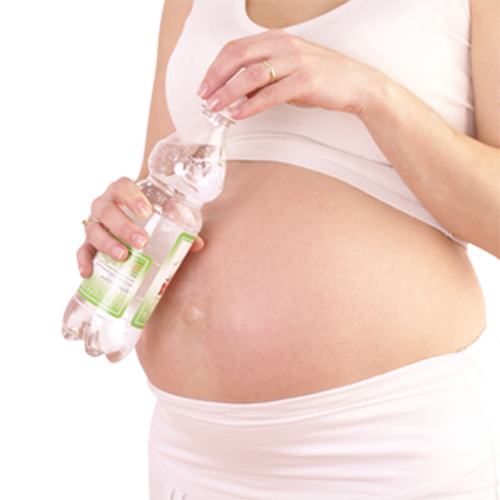Need a consultation related to the health condition discussed in this article? Schedule an appointment with your pharmacist at a time that works for you.
During pregnancy, a woman must ensure that her nutritional needs and those of the baby are met, by an adequate food intake and by taking supplements.
Nutrition during pregnancy
During pregnancy, a woman’s body plays a new pivotal role, that of giving life. This task not only requires more energy, but also more vitamins and minerals. In fact, the embryo must receive, via the placenta, certain nutrients essential to its development. This necessity is reflected by the mother’s increased nutritional needs.
Here are a few tips to ensure a balanced diet during pregnancy:
- Eat when you are hungry, but follow the recommendations of Canada’s Food Guide. It is the best guide for a healthy diet.
- Choose quality foods such as vegetables, fruits, dairy products, legumes, etc.
- Avoid foods that are high in fat, sugar, salt or that have a poor nutritional value (chocolate, junk food, potato chips, soft drinks, etc.).
- Avoid certain foods that can pose a risk during pregnancy, such as raw fish, non-pasteurized dairy products or juice, and alcohol.
- Eat more often, making sure to reduce portion sizes. This may prevent certain unwelcome symptoms, such as nausea or gastroesophageal reflux. This will also help to curb cravings.
- Don’t worry about weight gain. If you eat well, follow the recommendations of Canada’s Food Guideand remain active, you’re unlikely to gain excessive weight.
That said, although a healthy and balanced diet allows most nutritional needs to be met, some deficiencies may occur during pregnancy, due to the low amount of certain nutrients in food. This is why taking vitamin and mineral supplements is usually necessary.
Preparing for pregnancy with folic acid
Folic acid, also called “vitamin B9”, is an essential element in the course of a healthy pregnancy. It contributes to the proper development of the child’s brain and nervous system. A folic acid deficiency can have serious consequences, such as birth or neural tube defects (i.e. spina bifida).
Even with good dietary habits, a supplement is needed for an embryo to receive all the folic acid it needs. Ideally, a folic acid supplement should be started two to three months before becoming pregnant and continued throughout pregnancy. Most women need a supplement of 0.4 mg to 1 mg of folic acid a day. However, certain factors warrant a daily intake of 5 mg of folic acid a day.
Iron: the importance of storing it
Iron is also an important element for a healthy pregnancy. The primary role of this mineral in the body is to help red blood cells carry oxygen to various body cells to ensure their proper function. During pregnancy, the mother’s total blood volume increases, requiring a large quantity of iron. The foetus must also receive iron from its mother to make its own reserves, which will be useful in the first months of life.
Iron can be found in red meat, fish and legumes. Unfortunately, diet alone rarely ensures the recommended daily intake.
Calcium and vitamin D: bone health and much more
Calcium and vitamin D are essential elements for the proper development of a baby’s bones and teeth. For pregnant women, a daily calcium intake of 1000 mg is recommended (including diet and supplements). Several foods provide a high calcium content:
- dairy products (milk, yogurt, cheese)
- fortified soy beverages
- fortified orange juice
- sardines
Vitamin D is primarily produced when the skin is exposed to sunlight. Although certain foods such as fortified milk and canned salmon contain vitamin D, it is difficult to ensure the daily recommended intake through diet alone.
How to choose the right supplements
There are a number of vitamin and mineral supplements available on the market. During pregnancy, it’s important to choose one that is specially designed for pregnant women. This way, the body will absorb not only the above-mentioned elements, but other essential nutrients for a healthy pregnancy as well.
Make an appointment with your pharmacist to determine the dose of folic acid and the type of prenatal supplements you need for your health.

